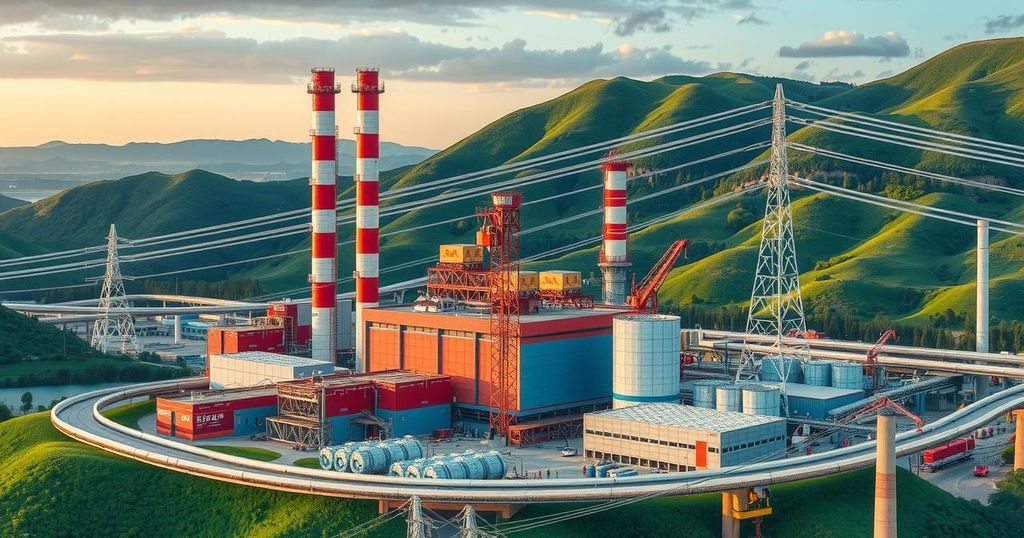Bolivia has inaugurated a steel plant financed by a Chinese loan, aiming to decrease reliance on metal imports. The $546 million Mutun megaproject is projected to produce nearly 200,000 tons of steel annually, potentially replacing 50% of imports and preventing over $250 million in currency outflows. This development is part of China’s Belt and Road Initiative, amid growing geopolitical tensions in Latin America.
On Monday, Bolivia inaugurated a new steel plant aimed at decreasing its dependence on metal imports, which was financed by a loan from China. The Mutun megaproject, located in Puerto Suarez near the Brazil border, cost approximately $546 million and represents an expansion of China’s economic influence in South America, primarily through the Export-Import Bank of China.
President Luis Arce emphasized that the primary goal is to enable all Bolivians to benefit from a long-neglected natural resource. The plant is expected to produce around 200,000 tons of steel annually, enabling Bolivia to replace approximately 50 percent of its metal imports and avoid a currency outflow exceeding $250 million each year, as stated by Jorge Alvarado from the operating public company.
Bolivia’s economy has faced significant difficulties since 2023, largely due to utilizing its international reserves on subsidized fuel sales. This steel plant reflects China’s support for Bolivia as part of its broader Belt and Road Initiative, which aims to enhance China’s global economic influence. Latin America is increasingly positioned as a critical arena in the geopolitical tensions between the United States and China, with regional countries facing growing pressure to align with one side.
The Mutun site is estimated to contain over 40 billion tons of iron ore, making it one of the world’s largest deposits according to government estimates. This investment not only aims to bolster Bolivia’s steel production capacity but also signifies an important step towards self-sufficiency in its metal industry.
The inauguration of the steel plant in Bolivia represents a significant step towards reducing the nation’s reliance on imports and enhancing local production capabilities. Funded predominantly by a Chinese loan, this initiative underscores China’s strategic interests in South America while addressing Bolivia’s economic challenges in the aftermath of reduced international reserves. The project is poised to foster economic benefits for Bolivia by tapping into its vast natural resources.
Original Source: www.blackbeltnewsnetwork.com




